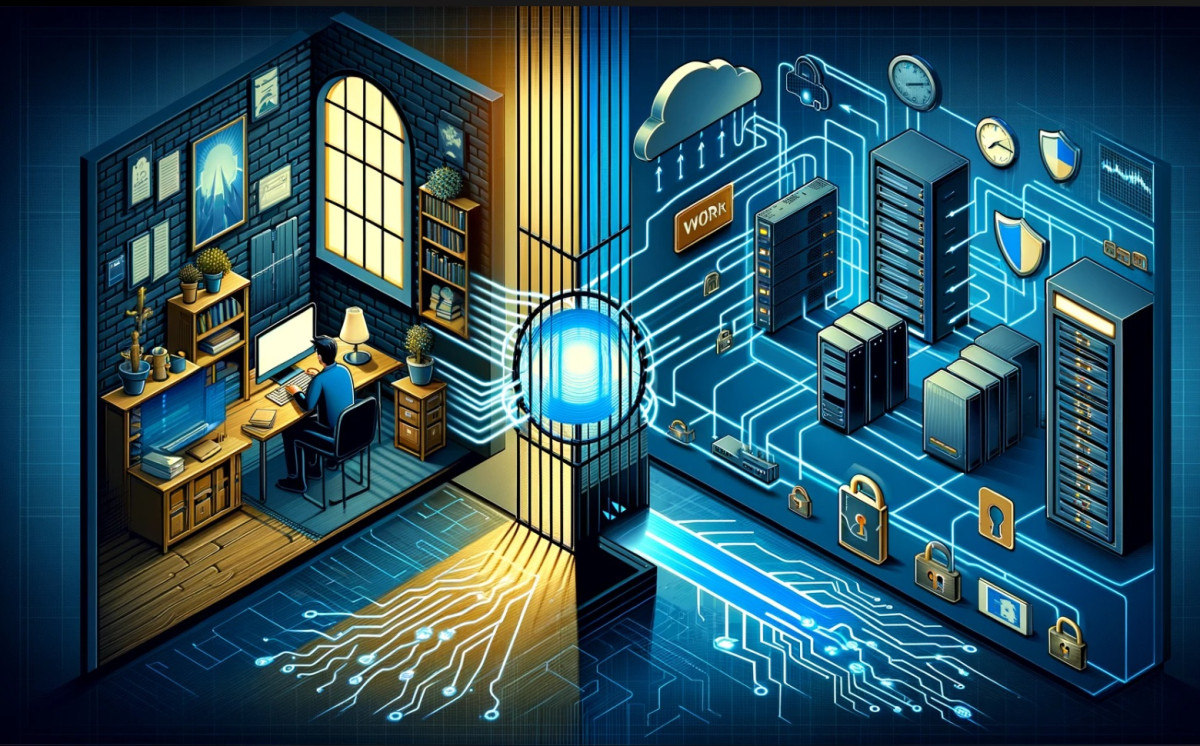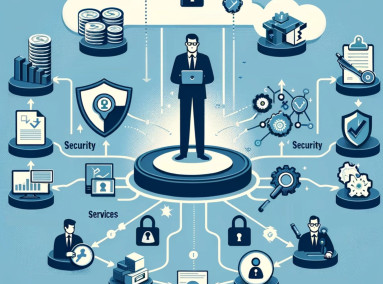IT Audit Securing Remote Work Networks: IT Audit Methodologies to Follow in the New Normal of Covid-19
23-11-29
본문
Section 1: Advanced Network Security Considerations in IT Auditing for Remote Work
Introduction: Tackling Sophisticated Network Security Challenges
In the current landscape of remote work, IT auditors face complex network security challenges. An in-depth understanding of various network components, such as VPNs, Firewalls, and Network Access Control (NAC) systems, is crucial. This section explores these advanced network security elements and additional considerations essential for a comprehensive IT audit in a remote work environment.
VPN Security Analysis
VPN Configuration and Encryption Standards:
Deep Dive: Auditors should assess the configuration of VPN solutions, focusing on the protocols used (e.g., OpenVPN, L2TP/IPsec) and the strength of encryption standards.
Considerations: The audit should verify that VPNs are using robust encryption algorithms (such as AES-256) and inspect for any vulnerabilities in the VPN setup.
Authentication Mechanisms in VPN:
Detailed Analysis: Evaluate the authentication mechanisms employed by the VPN, ensuring they align with best practices, such as using strong multi-factor authentication (MFA) methods.
Considerations: Check for the implementation of certificate-based authentication, biometric authentication, or hardware tokens in addition to standard username/password credentials.
Firewall Configuration and Management
Advanced Firewall Rule Assessment:
Technical Inspection: Examine the configuration of firewall rules to ensure they are appropriately set to regulate incoming and outgoing network traffic based on established security policies.
Considerations: Assess the firewall for proper segmentation of network resources, ensuring sensitive data and systems are isolated from general user access.
Stateful Inspection and Deep Packet Analysis:
In-depth Evaluation: Ensure that firewalls are capable of stateful inspection and deep packet analysis to detect and prevent advanced threats and unauthorized data exfiltration.
Considerations: Review firewall logs and intrusion detection/prevention systems (IDS/IPS) for signs of attempted breaches or policy violations.
Network Access Control (NAC) Strategies
Implementation of NAC Policies:
Technical Review: Evaluate how NAC policies are implemented to control access to network resources based on device compliance, user authentication, and endpoint security posture.
Considerations: Verify that NAC systems are effectively segmenting network access, particularly for BYOD (Bring Your Own Device) scenarios common in remote work.
Continuous Monitoring and Posture Assessment:
Advanced Analysis: Ensure that NAC solutions continuously monitor the security posture of devices connected to the network and enforce compliance with security policies.
Considerations: Assess the integration of NAC systems with other security tools for comprehensive endpoint visibility and response capabilities.
Additional Network Security Considerations
Intrusion Detection and Prevention Systems (IDS/IPS):
Evaluate the deployment and effectiveness of IDS/IPS solutions in identifying and responding to potential security incidents on the network.
Secure Wireless Networks:
Analyze the security of wireless networks being used by remote workers, ensuring strong encryption (like WPA3) and secure authentication methods.
Cloud Access Security Brokers (CASB):
Assess the use of CASB solutions for securing and monitoring access to cloud services, which are often integral to remote work environments.
Endpoint Detection and Response (EDR):
Examine the integration of EDR solutions for continuous monitoring and response to threats at the endpoint level, especially for devices used in remote work.
Conclusion
Advanced IT auditing in a remote work setting necessitates a thorough examination of network security components like VPNs, Firewalls, and NAC systems, along with additional tools like IDS/IPS, CASBs, and EDR solutions. Auditors must delve into the configuration, management, and integration of these systems to ensure a robust defense against the sophisticated security challenges posed by remote work environments. By focusing on these elements, IT auditors can provide valuable insights into enhancing the overall security posture of an organization in the era of distributed workforces.
Section 2: Advanced Network Security Measures in IT Auditing for Remote Work
Introduction: Elevating IT Audit Practices in Network Security
In an era where remote work has become prevalent, IT auditors must deeply understand and evaluate network security infrastructure. This section focuses on advanced network security measures such as VPNs, Firewalls, and Network Access Control (NAC), crucial for ensuring robust security in remote work environments. It also explores additional tools and practices that should be considered in a comprehensive IT audit.
Advanced VPN Security Analysis
VPN End-to-End Encryption:
Deep Analysis: Evaluate the implementation of end-to-end encryption within VPN tunnels. Ensure encryption protocols like SSL/TLS or IPsec are correctly configured to protect data from interception during transmission.
Focus: Investigate the strength of encryption algorithms and the security of key exchange mechanisms.
VPN Authentication Protocols:
Scrutiny: Assess the robustness of authentication protocols used in VPN access. This includes evaluating multi-factor authentication mechanisms and certificate-based authentication.
Focus: Verify the process of issuing, revoking, and managing digital certificates and keys used for VPN authentication.
Comprehensive Firewall Configuration Review
Firewall Rule Management:
Technical Inspection: Analyze the configuration and management of firewall rules. Assess whether the rules align with the organization's security policies and the principle of least privilege.
Focus: Look for redundant, outdated, or overly permissive rules that could expose the network to risks.
Advanced Threat Protection:
Evaluation: Determine the capability of firewalls to identify and mitigate advanced threats, including zero-day exploits and sophisticated malware.
Focus: Examine the integration of firewalls with threat intelligence feeds and their ability to perform deep packet inspection.
Network Access Control (NAC) Strategies
Role-based Access Control in NAC:
Analysis: Review how NAC solutions enforce role-based access control policies. Check how these policies are defined and enforced, especially for remote users.
Focus: Ensure that NAC policies are dynamically updated based on user roles and network security postures.
Device Compliance and Posture Assessment:
Assessment: Audit the mechanisms for checking the security posture and compliance of devices attempting to access the network. This includes evaluating endpoint security software, OS patch levels, and anti-malware tools.
Focus: Verify the process of quarantining or restricting non-compliant devices and the effectiveness of remediation actions.
Additional Considerations for Network Security in IT Auditing
Secure Wireless Network Protocols:
Evaluate the security measures implemented in wireless networks, particularly those used by remote workers, ensuring they meet current security standards.
Segmentation and Isolation Strategies:
Assess network segmentation practices, particularly how sensitive data and critical systems are isolated from general network access.
Monitoring and Incident Response:
Review the effectiveness of network monitoring tools and incident response plans, focusing on their ability to detect and react to security incidents rapidly.
Cloud Access and Security:
Analyze the security controls around cloud access, including the use of Cloud Access Security Brokers (CASB) and secure cloud gateways.
Conclusion
For seasoned IT auditors, an in-depth understanding and evaluation of advanced network security measures are vital in the context of remote work. This involves not only scrutinizing VPNs, Firewalls, and NAC systems but also considering additional aspects like wireless security, network segmentation, and cloud access controls. By focusing on these sophisticated and often overlooked elements, IT auditors can provide comprehensive insights into enhancing network security and ensuring the safe and efficient operation of remote work environments.



